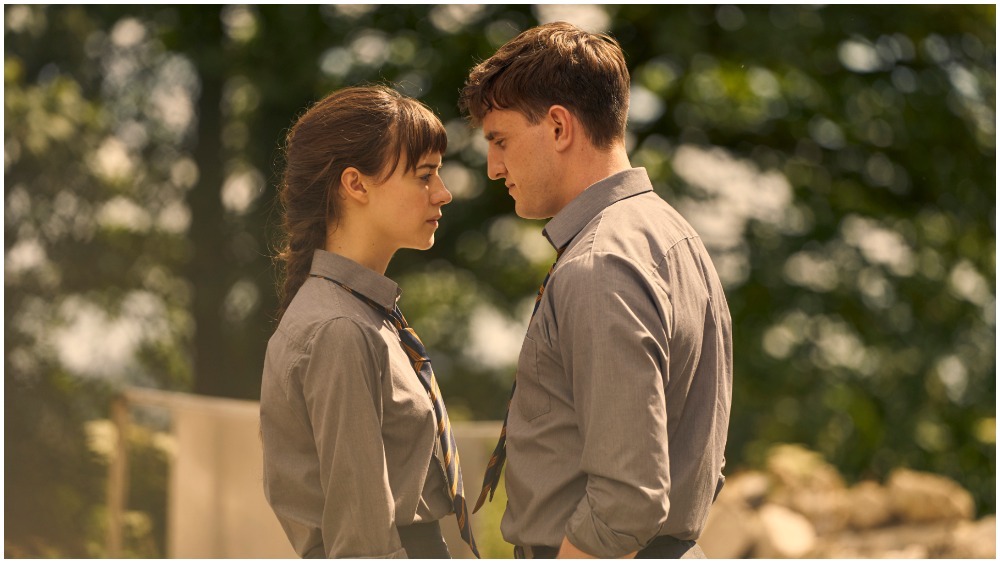BBC Drama Boss: Shortage of Scripted Shows Will Mean More Global Co-Productions
By Tim Dams
LOS ANGELES (Variety.com) – A shortage of scripted drama due to coronavirus restrictions will lead to more partnerships between broadcasters and SVODs “to share the goods around,” according to the BBC’s controller of drama Piers Wenger.
Speaking as part of an online Q&A organized by the Edinburgh International TV Festival, Wenger said that new scripted content is going to be thin on the ground because so many shoots have been canceled during the pandemic.
“I have spent a lot of time on Zoom to my counterparts in the U.S. — whether (that’s) HBO, Hulu, AMC or some of the SVODs — and those big platforms are in an arms race. They want titles; they need to keep restocking their platforms,” says Wenger.
Though there has been significant hand-wringing in the U.K. in recent years about an eventual end to the co-production model between broadcasters and global streamers, Wenger assures this period has shown the industry is still a ways off from that scenario.
“I think the anticipated end of co-productions between the terrestrial broadcasters and the SVODs is actually not going to turn out to be the case,” says Wenger. “There is going to be an even greater appetite for partnership in order to share the goods around.”
The BBC has partnered on many of its recent high-profile dramas, including with Hulu on “Normal People,” and HBO on “His Dark Materials.”
Wenger says foreign location filming is one of the biggest challenges facing the drama sector in the COVID-19 era, and highlights that the BBC will, as a result, spend more of its drama budget on shows that are made in the U.K.
“We will be, without doubt, spending more on shows that are shot in the U.K. because of the restrictions that are going to go on way beyond the end of lockdown,” says Wenger.
Most of the BBC’s drama slate that was due for delivery at the end of this year and early next year has been affected by the shut-down in scripted production. Some were closed mid-way through shooting, says Wenger, explaining that it is a major challenge to remount them on the other side of lockdown.
Restarting postponed dramas could impact on other shows that were due to start shooting later in the year, too. In particular, the availability of acting talent will be a “major challenge,” he adds, alongside considerations on how to make productions safely and with social distancing in mind.
The BBC started filming today at Elstree Studios on new adaptations of playwright Alan Bennett’s acclaimed “Talking Heads,” a series of monologues featuring actors including Jodie Comer, Martin Freeman and Kristin Scott Thomas.
“We’re going to learn an awful lot [from ‘Talking Heads’] about what is achievable and how long filming takes when you are required to be socially distanced,” says Wenger.
“You can’t move a flat [a pretend wall used on TV sets] that requires two people to move it. You can’t have hair and make-up and costume supervisors actually touch the actors. Everything is being done at a distance and that inevitably slows the shoot down.”
Wenger adds: “Until you can put two actors together in a set, it is going to be very hard to make drama normally.”
Speaking in the same session, BBC director of content Charlotte Moore says it is unlikely that there will be a single moment at which production can resume as normal. “I suspect it is going to be quite a gradual thing,” she says.
Wenger adds that the inability of dramas to secure insurance during the pandemic has posed “a real issue” for the sector.
Asked when he thought production might restart in a meaningful way, Wenger says it “still regrettably feels like early days” and that “production feels a little way off.”
“If social distancing continues for a year, we are definitely going to be wanting to make drama in that time, so are we going to be looking at quarantining actors and crew in order to allow actors to interact in the same space?” says Wenger. “Who knows? It’s such an evolving picture.”
The drama boss was clearer on the kinds of drama the BBC would look to make once production gets up and running.
“There was a moment when it felt like we might want to return to dramas about simple pleasures, community and wholesome, homey values. But actually, I think we will have had our fill of that. In terms of the next wave of dramas that people are going to want… the big overarching thought is big, bold, entertaining, edge-of-your-seat ideas that will take people out of their own homes into exciting worlds,” says Wenger.

